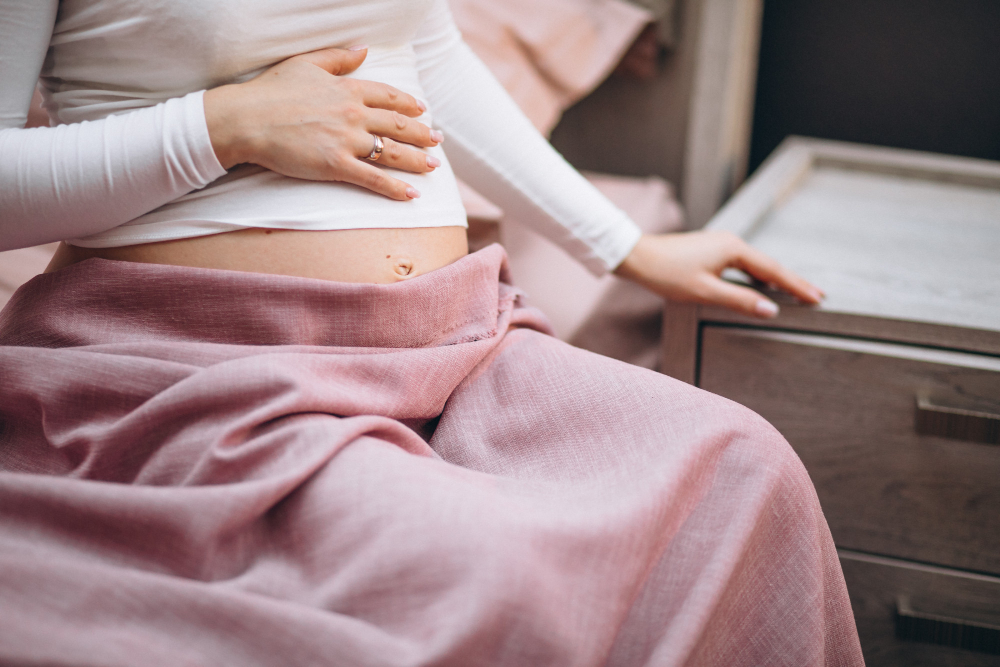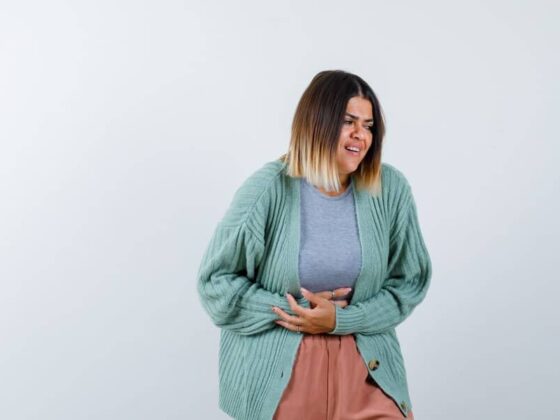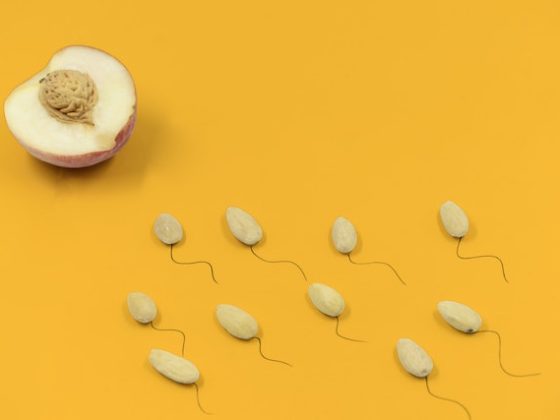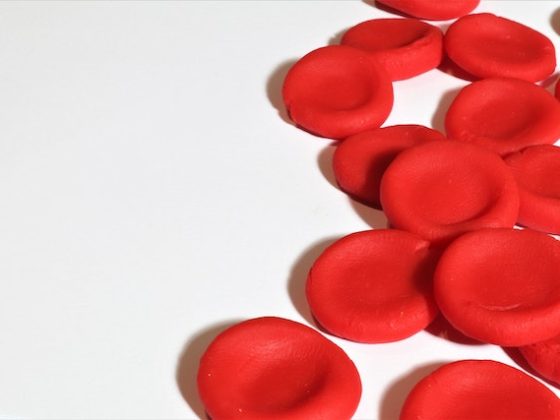Hey there! This post may contain affiliate links. As an Amazon Associate, I earn a teensy commission from qualifying purchases when you buy through these links (at no additional cost to you). For more info, please check the full disclaimer.
Women usually stop having periods just after conceiving. But at times, women may experience light bleeding or spotting during pregnancy, which is often confused with periods. So the question arises: is it possible to have periods during pregnancy?
Spotting is usually a light amount of blood, that is pink, red, or brown. It’s usually very light and doesn’t even fill up the panty liners. Periods are usually heavier and can overflow panty liners and need tampons, pads, or period cups.
Spotting during early pregnancy is usually normal and not a cause for concern.
In this article, we take an in-depth look at menstruation and pregnancy, the other causes of bleeding during pregnancy, and what to do about them.
Periods During Pregnancy: Is It Possible?
The short answer is NO. You can’t get periods when you are pregnant. Any bleeding that happens during pregnancy is not periods.
Periods facilitate pregnancy. Eggs are released from the ovary once a month, a process known as ovulation.
Before ovulation, the uterus prepares for pregnancy by thickening the internal lining with blood circulation and making it more favorable for pregnancy.
A released egg has around 12-24 hours. During this fertile window, if the sperm is able to fertilize the egg, the egg will attach to the uterus – known as implantation – and pregnancy will begin.
However, if sperm doesn’t fertilize the egg, the uterus starts shedding the lining. This is the start of the period. The blood contains mucosal lining and discarded eggs.
If the couple conceives during the fertile window, the egg implants in the uterus and the pregnancy begins.
When a woman is pregnant, her body produces hormones that prevent ovulation. Hence, there is no menstrual cycle and no period. This is why women don’t have periods during pregnancy.
And this is also why skipped periods are often considered the first sign of pregnancy.
Read More: 14 Must-Have Foods to Relieve Period Cramps
Causes of Bleeding During Pregnancy
According to the American College of Obstetricians and Gynecologists (ACOG), 15-20% of women report bleeding or periods during pregnancy.
Some common causes of bleeding during pregnancy are as below.

- Implantation bleeding: It occurs when the fertilized egg implants in the lining of the uterus. Implantation bleeding usually happens in the first trimester of pregnancy, about 10-14 days after conception, and is usually light and goes away on its own.
- Miscarriage: A miscarriage is the loss of a pregnancy before the second trimester or 20 weeks of pregnancy. Miscarriages can cause heavy bleeding, cramping, and other symptoms.
- Ectopic pregnancy: An ectopic pregnancy is a condition when the implantation occurs outside the uterus. Ectopic pregnancies are a medical emergency and can be life-threatening.
- Molar pregnancy: This is a rare condition when a fertilized egg implants in your uterus, but a tumor forms instead of a fetus. It can cause heavy bleeding and vomiting and may require surgery to remove the abnormal tissue.
- Cervical changes or infections: During pregnancy, there is an increased blood supply to the cervix and vagina, causing them to bleed during intercourse. Increased hormone levels during pregnancy may encourage the growth of cervical polyps (noncancerous growths) or pregnancy infections such as chlamydia, gonorrhea, thrush, or bacterial vaginosis.
- Placenta previa: Placenta previa is a condition in which the placenta covers part or all of the cervix. Placenta previa can cause bleeding, especially during sex or when the woman’s cervix is touched.
- Placenta abruption: Placenta abruption is a condition in which the placenta separates from the wall of the uterus. Placenta abruption can cause heavy bleeding, pain, and other symptoms.
- Hemorrhage: This condition causes blood vessel rupture and excessive bleeding. It can be due to any reason, such as trauma to the uterus, a disruption between the blood-rich layers of the placenta, or a bleeding disease.
- Preterm Labour: This is when labor starts before 37 weeks of pregnancy. It can cause vaginal bleeding along with regular contractions, lower back pain, pelvic pressure, or changes in vaginal discharge. It may require medication to stop labor or delivery if the baby is mature enough.
Read More: 7 Warning Signs of Bacterial Vaginosis
When Should You Seek Medical Help
Spotting in early pregnancy is common and okay, but you may need to see the doctor immediately if you notice some danger signs.
- Heavy bleeding: Bleeding is heavy and persistent, lasting more than a day, or filling up a pad or tampon. If you feel you are having your periods during pregnancy, see a doctor immediately.
- Pain: The bleeding is accompanied by severe pain and cramping, especially in the abdomen and back. Look out for contractions, passing tissues out of the vagina, fever, chills, or other signs of infections.
- Later Pregnancy: The bleeding occurs after 20 weeks of pregnancy. In this case, it may be bright red (fresh blood) or painless.
Read More: 11 Tips to Reduce Birth Injuries
- Trauma: Bleeding occurs after intercourse, a cervical exam by the doctor, or any trauma to the abdomen.
- Fetal Distress: Look out for signs of fetal distress, such as decreased fetal movements, abnormal fetal heart rate, or leakage of vaginal fluid.
- History: Women who have a Rh-negative blood group or a history of miscarriage are more likely to have bleeding during pregnancy due to complications.
If you experience bleeding during pregnancy, it is important to see your doctor right away. Bleeding can be a sign of a serious problem, and it is important to get treatment as soon as possible.
Conclusion
Bleeding during pregnancy is not a sign of periods. Some spotting that occurs during early pregnancy may be implantation bleeding, marking the start of your pregnancy.
However, if you notice heavier bleeding, or bleeding during the later part of the pregnancy, you may want to see a doctor to rule out any complications and get treatment as soon as possible for better maternal and fetal health.
References:
- https://www.ncbi.nlm.nih.gov/pmc/articles/PMC2884141/
- https://pubmed.ncbi.nlm.nih.gov/30702252/








